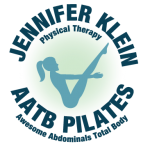Common Polo Injuries
While competitive and recreational polo rely significantly upon core and lower extremity strength and endurance, the right shoulder and spine are under substantial physical demand as well. It is important to realize that the whole body is at risk for overuse injuries.
Groin Strain
Each time a rider grips his/her saddle or flexes their leg to rise up and down in the saddle, the adductor muscles around the hip and their associated tendons are being used. They are particularly prone to injuries from the repetitive stress of polo play, especially if any existing muscle fatigue, weakness, or imbalances already exist. The repetitive stress causes the adductors to become abnormally stretched or torn, resulting in a groin strain. The quadriceps, sartorius, and other muscles in the thigh area are also engaged, serving not only to grip the saddle, but also to flex and extend the leg allowing the rider to rise up and down as the horse is trotting.
Shoulder Issues and Wrist Strain
Shoulder tendinitis is when the rotator cuff tendons become irritated and inflamed. Shoulder bursitis is when the subacromial bursa becomes irritated and inflamed. In either case, repetitive shoulder movements, such as from raising the arm to swing a polo mallet, or a mild direct hit to the shoulder can irritate the tendons and bursa and cause them to become swollen. As the swelling continues, the space between the acromion and humeral head becomes more narrow and can squeeze the rotator cuff, resulting in rotator cuff impingement.
Strained Calves, Quadriceps, and Shin Splints
Due to the constant demand on riders’ legs, strong and elastic muscles in the lower extremity are critical. Riders rely considerably on their calves to stabilize themselves and to provide directions that prompt the horse to turn or speed up by applying pressure. These calf muscles are vulnerable to overuse injuries, especially when riders ride with their heels down, and may cause the knee and quadriceps to compensate. The resulting muscle imbalance may lead to shin splints, causing pain, inflammation, and muscle weakness.
How Jennifer Klein Physical Therapy Can Help
In all of the aforementioned of the injuries, physical therapy can help strengthen and rehabilitate muscles, improve mobility, decrease pain, and restore function, having you back on your horse at full capacity.
Services Offered
- Polo-specific muscle stretching and strengthening
- Cupping and systemic dry needling
- Home exercise program to address imbalances
- Pilates Reformer classes for core strengthening and improved flexibility, agility, and coordination

Recent Comments